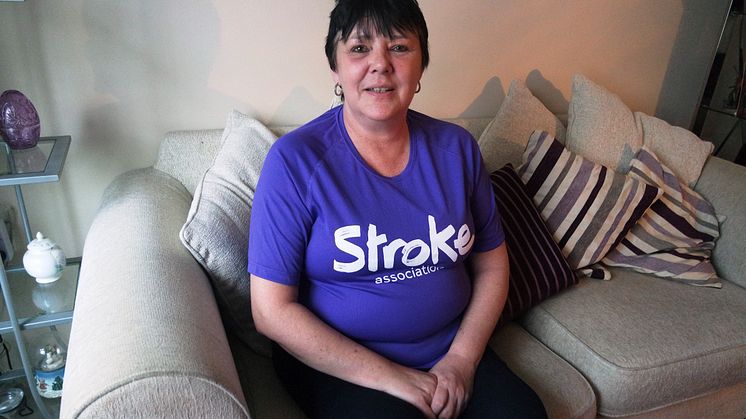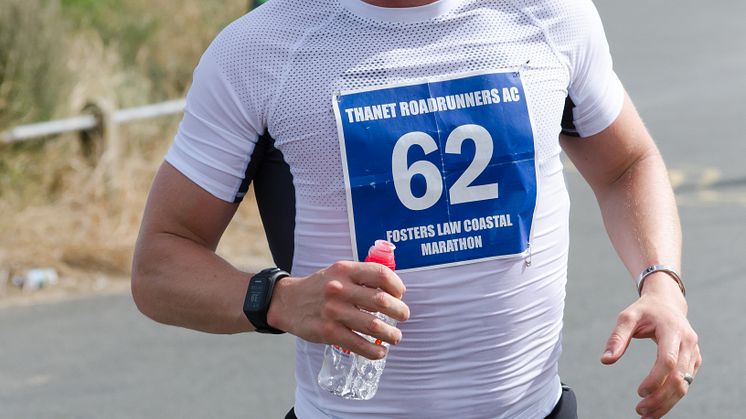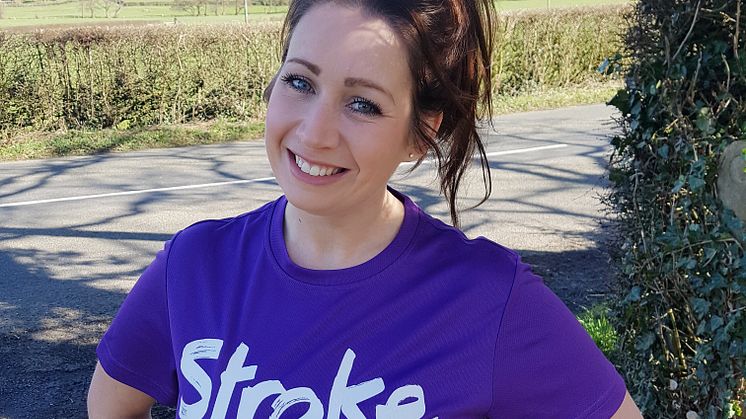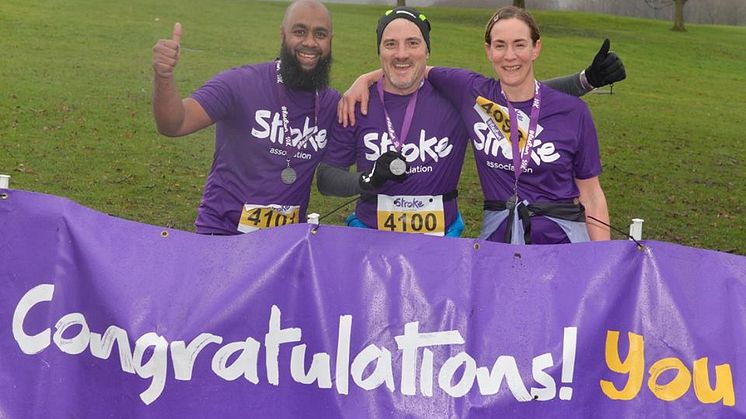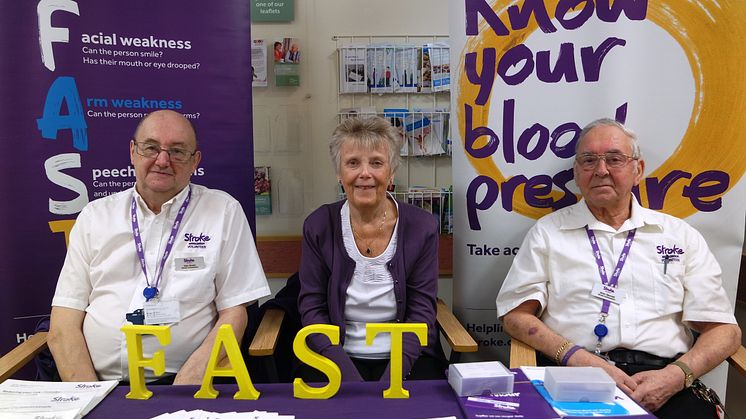
Press release -
Middleton stroke survivor urges people to act FAST
The Stroke Association is calling for people across Greater Manchester to be more aware of the early warning signs of stroke, and to share the FAST message to help save more lives.
The FAST Test identifies the three most common symptoms of a stroke and the right action to take:
FACE: Can the person smile? Has their mouth or eye drooped?
ARM weakness: Can the person raise both arms?
SPEECH problems: Can the person speak clearly and understand what you say?
TIME to call 999
Brenda Stringer, 71, from Middleton, survived a stroke in 2016 and is now spreading the word about recognising the FAST Test symptoms. Brenda credits two Stroke Association Ambassadors with saving her life, after they taught her the FAST test just months before she went on to have a stroke.
Brenda was visiting Rochdale Infirmary to see a consultant about an operation, and spoke to Stroke Association Ambassadors Alan Brown and Brian Bennett. Alan and Brian told Brenda about stroke and the symptoms, taught her the FAST test and gave her leaflets with all the details. On another visit to the hospital, Brenda told them she’d read the literature and had kept the FAST card in her diary.
Several months later in August 2016, Brenda was at a friend’s funeral and realised she was struggling to sing along to a hymn. Her right hand became weak and dropped off the pew she was holding onto, Brenda realised she couldn’t stand, so sat down for the final few minutes of the service, before trying to speak to the undertaker to explain that she thought she was having a stroke. She couldn’t talk and fortunately the undertaker acted quickly, calling called an ambulance which took her straight to Fairfield Hospital.
Brenda said: “I remember the paramedics saying that the clock is ticking, and I immediately thought of ‘Time’ in the FAST test.”
Brenda had a brain scan, and because she’d arrived at hospital in time, was given thrombolysis. She very quickly regained the movement in her right hand.
Brenda said: “If it wasn’t for Brian and Alan making me aware of FAST, I would never have known what was happening; I would have completely panicked. I’m sure they saved my life. Occasionally I can’t get my words out, my leg can feel heavy and I get tired more easily. I’m not quite back to normal and don’t think I ever will be, but I’m a fighter.
“I know that Brian and Alan teaching me the FAST test helped me to get back to a more normal life because I acted so quickly. I’m so grateful that I met them that day, as well as for the staff at Fairfield Hospital and all they did.”
Chris Larkin, Regional Director at the Stroke Association, said: “Having a stroke is devastating. It can happen to anyone, of any age, at any time. Every second counts when you are having a stroke, so recognising the signs and calling 999 for an ambulance is crucial. A stroke is a medical emergency – as serious as a heart attack, so you need to seek immediate medical help. The quicker a person arrives at a specialist stroke unit, the quicker they will receive appropriate treatment to minimise the impact of their stroke.
“We want more people in Greater Manchester to learn the FAST test and share it with their friends and family to help others to save lives, and improve the chance of a better recovery for those who experience stroke.”
To find out more about the FAST campaign, and to view information and support available, visit www.stroke.org.uk/FAST.
Topics
Categories
Regions


